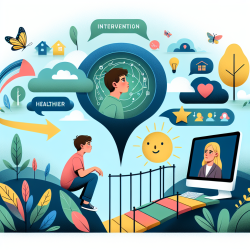The Flint Women’s Study, published in the International Journal for Equity in Health, offers crucial insights into the needs and suggestions for special populations, including young women, perinatal women, older women, women with disabilities, and LGBTQIA women. By implementing the outcomes of this research, practitioners can significantly enhance their skills and create better outcomes for these populations.
Key Findings and Recommendations
1. Mentorship and Positive Role Models
One of the most frequently mentioned needs across all groups was the necessity for mentorship and positive role models. Young women, in particular, benefit from having mentors who can guide them and provide examples of success. Mentorship helps protect vulnerable young women from risky behaviors, including human trafficking. For older women, mentoring younger women provides a sense of purpose and helps build social support networks.
2. Improved Access to Basic Needs
Access to healthy food, affordable quality housing, and reliable transportation were crosscutting themes. For perinatal women and new mothers, these needs are particularly pressing. Streamlining access to social services and resources can help address these basic needs more effectively.
3. Inclusive and Sensitive Healthcare
Women with disabilities and LGBTQIA women face significant barriers in accessing healthcare. Increasing sensitivity among healthcare providers and ensuring authentic inclusion in all areas of life can improve health outcomes. For LGBTQIA women, addressing housing discrimination and improving healthcare provider training are crucial steps.
4. Mental Health and Self-Worth
Many participants highlighted the need for mental health support and initiatives to boost self-worth. Younger women need to feel loved and appreciated, while older women need opportunities to contribute and feel valued. Creating social structures that promote interpersonal support can address these needs.
5. Addressing Structural Barriers
Structural barriers such as poor infrastructure and inadequate public transportation significantly impact the well-being of these populations. Practitioners can advocate for community-level supports and programs to improve infrastructure and accessibility.
Encouraging Further Research
The Flint Women’s Study provides a comprehensive framework for understanding the unique needs of special populations. Practitioners are encouraged to delve deeper into this research and consider how these findings can be applied in their practice. Continuous learning and adaptation are key to improving outcomes for these vulnerable groups.
To read the original research paper, please follow this link: Intersectionality, special populations, needs and suggestions: the Flint Women’s study.










